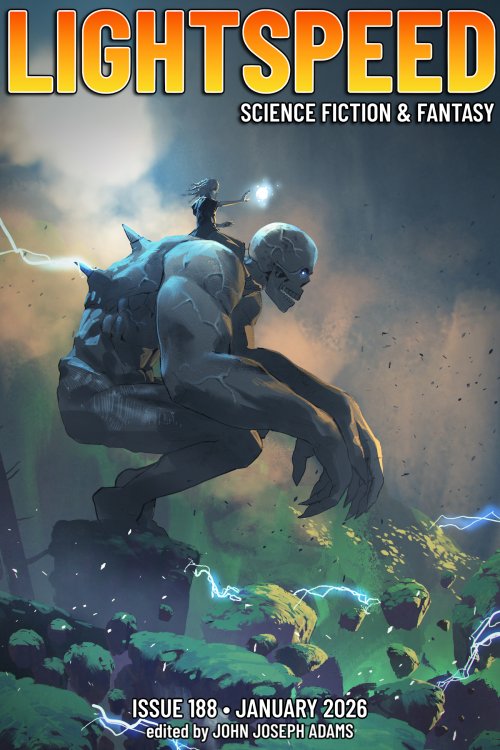“The Cyborg, the Tinman, the Merchant of Death” where war is real, and a machine of war is perhaps the greatest soldier, or threat, of all. What inspired this story of the challenges of service?
I played a lot of Halo as a kid. This story is straight FPS parody, showing the player character’s bizarre actions from the perspective of an AI grunt trying to justify them.
From the opening paragraphs, you establish varying levels of tension in the story: a new command unit; questions about serving under the Tinman; the death of the previous squad; the chemical readiness for battle (and I loved “a big old nervous shit” as a descriptor); a deadly game; the final reality. You carry the tensions through the rest of the story, leaving the reader on the edge of their seats until the end. As a writer, how do you approach establishing the mood for a story?
Mood is not usually something I think about. I guess it just happens, bleeding over from the events of the story and the language that feels right to describe them.
Another aspect of the story that sat very well with me was the precise nature of the sensory detail you used to carry the action and plot forward: swellies damping sound; splintered shin bones; the snap of vertebrae under a rifle; the heat of a fire grenade; “a thick, bruise-colored worm.” In your opinion, what is it about these little sensory details that drives a story home?
Small, specific details anchor a reader in a story. I try to avoid clichés or dead metaphors in my description, because people slide right over them without feeling anything.
Often your work is touched by darkness, stirring the shadows of our imaginations even as it shines a light on certain facets of what it means to be human. What is it about darker fiction that appeals to you as a writer and reader?
My mom always asks me why I don’t write more nice stories. I don’t think of what I write as particularly dark, but I have always been drawn to black humor, bleak settings, flawed characters, and violent climaxes. Those elements often appear in my work. They keep things entertaining.
The story also focuses on the downward spiral of a complex Stockholm Syndrome relationship between the main character and the Tinman. What sort of research, if any, did you do to support such development?
I write speculative fiction so I don’t have to research anything. Nah, kidding. But in this specific case, I just imagined what kind of weird codependency the protagonist might develop to cope with his situation.
What’s next for Rich Larson? What can eager readers look forward to in the coming year?
Tons! I have a literary SF story forthcoming in Asimov’s, a cyberpunk con caper in Interzone, a horror novelette at Tor.com, and an adventure fantasy in Gardner Dozois’s Book of Swords anthology. Then more stories in the pipeline at F&SF, Apex, and Asimov’s again.
On the book front, I’m working with my agent on revising a YA alien invasion novel. It’s like Animorphs but darker, and it’s going to kick ass.
Enjoyed this article? Consider supporting us via one of the following methods:










